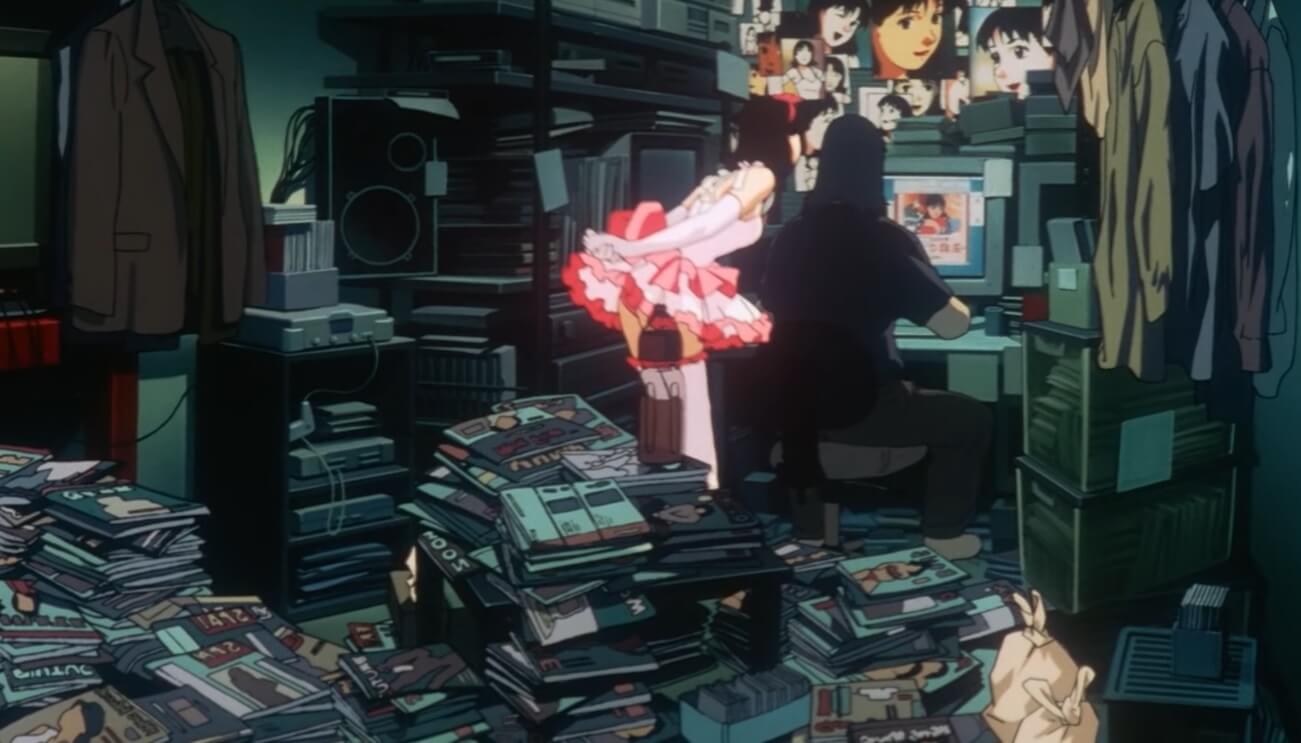There are some films that work best as shock-thrillers. Others accurately depict a slice of life. Still, others offer such lush visuals that viewers can forget they are watching an animated film. Very rarely does a film come around that combines these aspects. Perfect Blue is all these and more.
Perfect Blue is a movie about idol singers and idol singer culture. It’s also a movie about what happens when you’re young and naive and trip and fall on the way to stardom, and it’s also a movie about the difference between fandom and fanaticism.
Most of all, Perfect Blue is all about paranoia— the creeping, nameless dread you feel when you suddenly realize that a stranger is trying to force their way into your life.
Mima Kiragoe will get to experience all of these things in the course of Perfect Blue.
Related: The Weird Wired World: Serial Experiments Lain [Recommendation]
The film begins at a Tokyo area amusement park. A sentai hero show is going on, but it does not seem to be of much interest to the otaku milling around. They are present for the event by Cham, an up-and-coming idol group about to release their first CD.
Returning to the park, in the midst of the chaos, Mima Kirigoe (voiced by Iwao Junko—Key from Key The Metal Idol and Mayuka from Tenchi Muyo: Manatsu no Eve) makes an announcement that she is leaving Cham to pursue a career as a serious actress. This catches all the fans by surprise and puts a damper on the rest of the concert.
Upon showing it to her manager Rumi (voiced by Matsumoto Rika—Seaman from Yu Yu Hakusho, Satoshi from Pokemon), she learns that the letter talks about a web page called “Idol Online”. When she later buys a computer, she discovers fans on the web talk about her.
While Mima is initially amused by seeing herself on the web, she quickly realizes that one page dedicated to her created by “Me-mania,” has a great deal of personal information that seems to be tracking almost every aspect of her life, such as voice clips of her answering prank phone calls, down to what groceries she likes to buy and other private details that could only come from someone stalking her.
That’s another thing that Perfect Blue examines in all-too-vivid detail— the real Japanese otaku, the fanboys (in this case, definitely all-male) who attend dozens of shows featuring their favorites, track their activity online, and trade tapes and CDs and merchandise obsessively.
Mima soon lands her first acting role in a TV drama series called “Double Bind”. All is not idyllic however, as the first day on the set the owner of her management company is injured by a letter bomb sent to her. More accidents occur over the ensuing days, and people start dying.
In the midst of this, Mima starts seeing mysterious visions of herself in her Cham costume, laughing at her and taunting her. She also starts to see Uchida everywhere she goes.
The movie shifts into high gear— Mima gradually comes unhinged and starts to confuse day-to-day events with her own nightmares even doubting her own sanity.
And then things get weird.
What makes this so entertaining is that Satoshi Kon presents these scenes in such a scattershot manner that even the viewer can’t figure out what’s real and what isn’t. Each scene is framed by Mima abruptly awakening, as if from a nightmare.
Perfect Blue will keep you guessing right up until the end. Its incredible visuals, gripping story and a scathing depiction of otaku culture raise it far above anything in recent memory.
